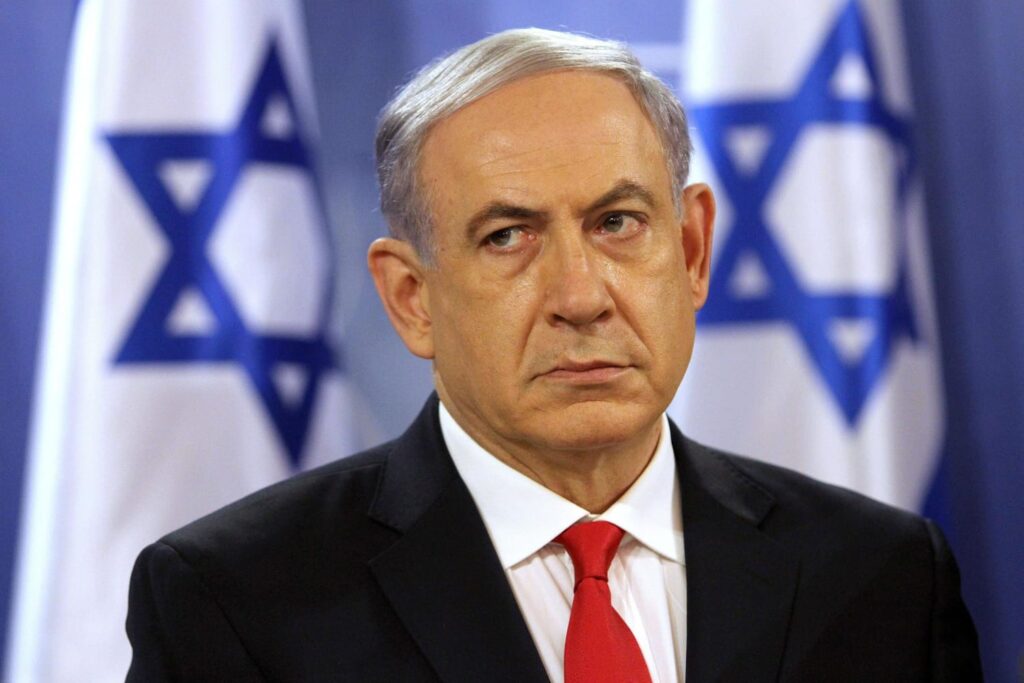The scorching sands of Gaza are stained with the blood of a protracted conflict, and the specter of peace recedes further with each passing day. Israeli Prime Minister Benjamin Netanyahu’s defiant rejection of the long-held “two-state solution” throws a bucket of ice water on hopes for a diplomatic resolution, leaving the region shrouded in an even denser fog of war and uncertainty.
Netanyahu’s Rejection of Two-State Solution Intensifies Gaza Conflict

The current offensive unleashed by Israel paints a grim picture. With 85% of Gaza’s population displaced and nearly 25,000 Palestinians dead, according to Hamas figures, the human cost is staggering. International pressure mounts on Israel to rein in its offensive and seek a sustainable end to the war. Allies like the United States, and even many adversaries, advocate for the revival of the two-state solution, envisioning a future where independent Palestinian and Israeli states coexist peacefully.
But Netanyahu’s pronouncements from the battlefield paint a different picture. His ironclad demand for Israeli security control over all land west of the Jordan River effectively negates the possibility of Palestinian sovereignty within any future state. This statement exposes a chasm not only between Israelis and Palestinians, but also between Israel and its closest allies, including the United States.
Fog of War and Uncertainty
Netanyahu’s stance against Palestinian statehood is hardly new. He has spent his political career advocating for a united Israel, and just last month proudly claimed credit for blocking Palestinian statehood efforts. However, his current public rejection of the two-state solution and unwavering commitment to the military path represent a significant escalation, straining relations with Washington and further isolating Israel internationally.
Since the devastating 7th October attacks that claimed around 1,300 Israeli lives and led to the capture of 240 hostages, the United States has supported Israel’s right to defend itself. However, as the death toll in Gaza mounts and images of devastation flood newscasts, calls for Israeli restraint from Western governments have intensified.
Netanyahu Defies Washington’s Advice, Straining US-Israel Relations
The White House has repeatedly urged Israel to adopt a more nuanced approach: advocating for targeted weapon use instead of indiscriminate airstrikes, discouraging a ground invasion, and pushing for the two-state solution, potentially with the Palestinian Authority playing a role in a post-conflict Gaza.
But these pleas have often fallen on deaf ears. Mr. Netanyahu has publicly rebutted Washington’s advice during Secretary of State Blinken’s visits, further aggravating tensions. This, in turn, has fueled frustration in some American circles, sparking calls for conditioning US aid to Israel on progress towards a two-state solution.
While Netanyahu’s latest pronouncements may find favor with his shrinking base and the far-right factions supporting his government, they send shockwaves through both Israeli and international audiences. In Israel, recent polls indicate that most citizens prioritize the safe return of hostages over the seemingly impossible task of eliminating Hamas. The world watches with growing horror at the human cost of this conflict, questioning the long-term sustainability of this approach.
Also Read: A Summer of Discontent: French Police Demand Fair Play for the Olympics
Navigating Israel’s Future: The Viability of the Two-State Solution
Is the two-state solution still a viable path? The answer hangs heavy in the air, choked by the acrid smoke of war and the deafening cries of a ravaged population. Netanyahu’s defiant stance against it raises uncomfortable questions about Israel’s future: can it coexist with a sovereign Palestinian state? Is a unilateral security-driven approach sustainable in the long run? And how will this saga of violence and conflicting visions ultimately unfold?
As Gaza burns and the international community grapples for solutions, one thing remains clear: the current trajectory leads to a dead end. A diplomatic avenue must be forged, one that respects the legitimate security concerns of Israel while acknowledging the Palestinian yearning for self-determination. Only through genuine dialogue and a shared commitment to a two-state solution can peace hope to rise from the ashes of this devastating conflict.